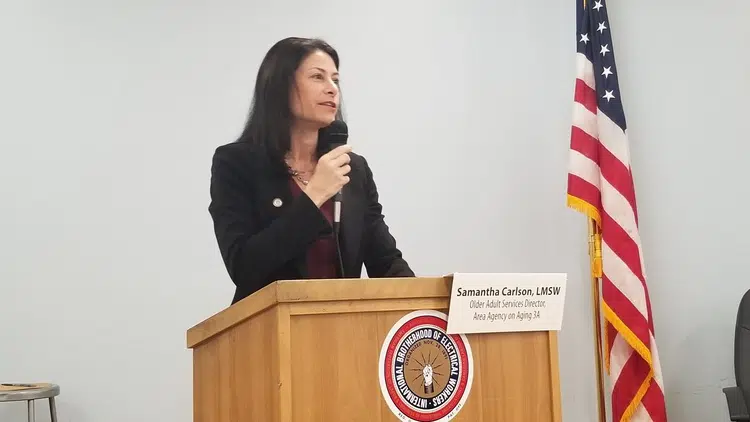LANSING, MI (WKZO AM/FM) — Recommendations on how the telecom industry, hospitals and the federal and state governments can prevent illegal robocalls from disrupting communications in hospitals were presented to the Federal Communications Commission (FCC) recently by a federal advisory committee, which includes Michigan Attorney General Dana Nessel’s office.
The Hospital Robocall Protection Group (HRPG) issued its report to the FCC on December 14, outlining best practices for preventing unlawful robocalls from being made to hospitals.
The report was a requirement established for the HRPG under the Pallone-Thune Telephone Robocall Abuse Criminal Enforcement and Deterrence Act (TRACED Act).
One of Nessel’s assistant
“Under my administration, Michigan has been a national leader in responding to illegal robocalls and I am proud of the role my office has had in creating best-practices guidelines for hospitals, governments and voice service providers. These guidelines will strengthen the protection for hospitals from robocalls
Hospitals currently face many unlawful calling activities, including telephone denial-of-service attacks, targeted social engineering and phishing schemes.
These calls can disrupt critical communications, threaten patients’ privacy, facilitate unauthorized access to prescription drugs, and divert important hospital resources.
Recognizing that efforts made by a single entity will not adequately protect hospitals from illegal robocalls, the HRPG recommendations focus on collective efforts and encourage a coordinated response among hospitals, phone companies, telecom carriers and government agencies to mitigate the impact of these calls.
Some of the best practices in the report include:
- Telecom carriers should analyze, identify and monitor traffic on their network for patterns consistent with unlawful robocalls, and establish a method to ensure hospitals can quickly notify the provider about unlawful robocalls that interfere with patient care and hospital operations.
- Hospitals should educate staff and raise awareness of robocall incidents through staff training and preparing robocall incident response plans, as well as evaluate robocall events to capture relevant information about calling activity.
- Federal and state governments should create and implement policies to facilitate the telecom industry’s ability to prevent unlawful robocalls from reaching hospitals and improve communication methods among hospitals and law enforcement agencies.
A full copy of the HRPG report is available online at the HRPG website.









Comments